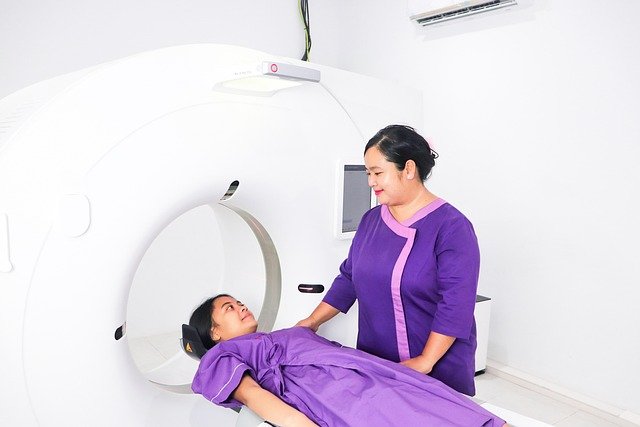Understanding Sperm Donation: How the Process Works and What to Expect
Sperm donation is a valuable way to help individuals and couples facing fertility challenges. The process involves medical screening, privacy considerations, and different compensation models. Learn what to expect and how donation may offer hope to those in need. Discover more in this article.

What is the sperm donation process like?
The sperm donation process involves several steps to ensure the safety and efficacy of the donated samples. Initially, potential donors undergo a thorough screening process, including medical history evaluation, physical examination, and genetic testing. Once approved, donors typically visit a fertility clinic or sperm bank to provide samples. These samples are then frozen and quarantined for a period, usually around six months, to allow for additional health screenings. During this time, donors may be asked to provide multiple samples to increase the available supply. After the quarantine period and final health clearance, the sperm samples become available for use in fertility treatments.
How can one become a sperm donor?
Becoming a sperm donor requires meeting specific criteria and going through a comprehensive screening process. Generally, sperm banks and fertility clinics look for donors between the ages of 18 and 40 who are in good overall health. The screening process typically includes:
-
Detailed medical history evaluation
-
Physical examination
-
Genetic testing for hereditary conditions
-
Infectious disease screening
-
Semen analysis to assess sperm quality and quantity
-
Psychological evaluation
Potential donors must also be willing to commit to regular donations over an extended period, usually 6-12 months. It’s important to note that only a small percentage of applicants are ultimately accepted as sperm donors due to the stringent requirements.
How does sperm donation support fertility treatments?
Sperm donation plays a crucial role in various fertility treatments, providing hope for individuals and couples facing challenges in conceiving. Some of the ways sperm donation supports fertility include:
-
Assisting single women or same-sex female couples in achieving pregnancy
-
Helping couples where the male partner has infertility issues or genetic concerns
-
Providing options for individuals or couples using surrogacy
-
Enabling fertility preservation for individuals undergoing medical treatments that may affect fertility
Donated sperm can be used in different fertility procedures, such as intrauterine insemination (IUI) or in vitro fertilization (IVF), depending on the recipient’s specific needs and medical recommendations.
What should potential donors know about sperm donation?
Potential sperm donors should be aware of several important factors before committing to the process:
-
Legal considerations: Donors typically sign agreements relinquishing parental rights to any children conceived using their sperm.
-
Anonymity vs. identity release: Some sperm banks offer options for donors to remain anonymous or agree to identity release when the child reaches a certain age.
-
Compensation: While donors are usually compensated for their time and effort, it’s important to understand that selling sperm is illegal in many countries.
-
Long-term commitment: Regular donations over an extended period may be required.
-
Psychological implications: Donors should consider the emotional aspects of potentially having biological children they may never meet.
What are the sperm donor requirements?
Sperm donor requirements can vary slightly between clinics and sperm banks, but generally include:
-
Age: Typically between 18 and 40 years old
-
Health: Good overall physical and mental health
-
Education: Many sperm banks prefer donors with a college degree or higher
-
Height: Some clinics have minimum height requirements, often around 5’7” or taller
-
BMI: A healthy body mass index, usually between 18.5 and 29.9
-
Lifestyle: Non-smokers with limited alcohol consumption are preferred
-
Family medical history: No significant hereditary diseases or genetic disorders
-
Sperm quality: High sperm count, motility, and morphology
-
Commitment: Willingness to donate regularly for 6-12 months
-
Legal status: Ability to provide proof of identity and legal right to work in the country
What is the typical compensation for sperm donors?
Compensation for sperm donors can vary depending on the location, clinic, and donor’s qualifications. While selling sperm is illegal in many countries, donors are often compensated for their time, effort, and expenses related to donation.
| Location | Typical Compensation Range (per donation) | Frequency of Donations |
|---|---|---|
| United States | $50 - $200 | 1-3 times per week |
| United Kingdom | £35 - £50 | 1-2 times per week |
| Australia | $100 - $150 AUD | 1-2 times per week |
| Canada | $75 - $100 CAD | 1-2 times per week |
Prices, rates, or cost estimates mentioned in this article are based on the latest available information but may change over time. Independent research is advised before making financial decisions.
It’s important to note that many sperm banks offer additional compensation for long-term commitment, reaching certain donation milestones, or agreeing to be an identity-release donor. Some clinics also provide reimbursement for travel expenses or offer bonuses for referring other qualified donors.
Sperm donation is a complex process that involves careful consideration from both donors and recipients. Understanding the requirements, procedures, and implications of sperm donation is crucial for all parties involved. While it can be a rewarding experience that helps create families, it’s essential to approach the decision with thorough knowledge and careful reflection on the long-term implications.
This article is for informational purposes only and should not be considered medical advice. Please consult a qualified healthcare professional for personalized guidance and treatment.




